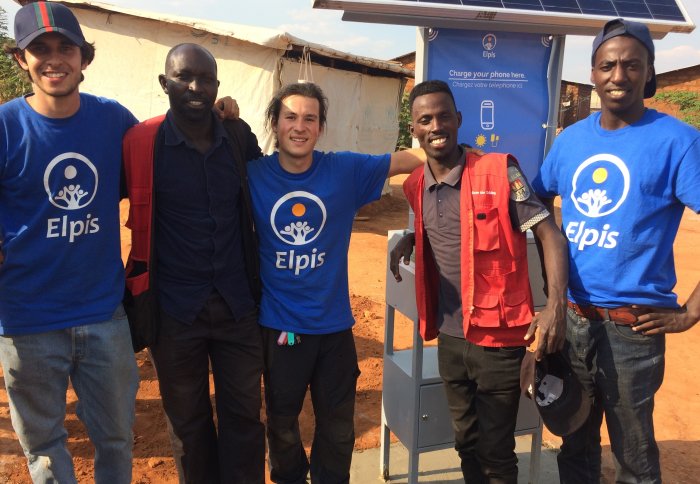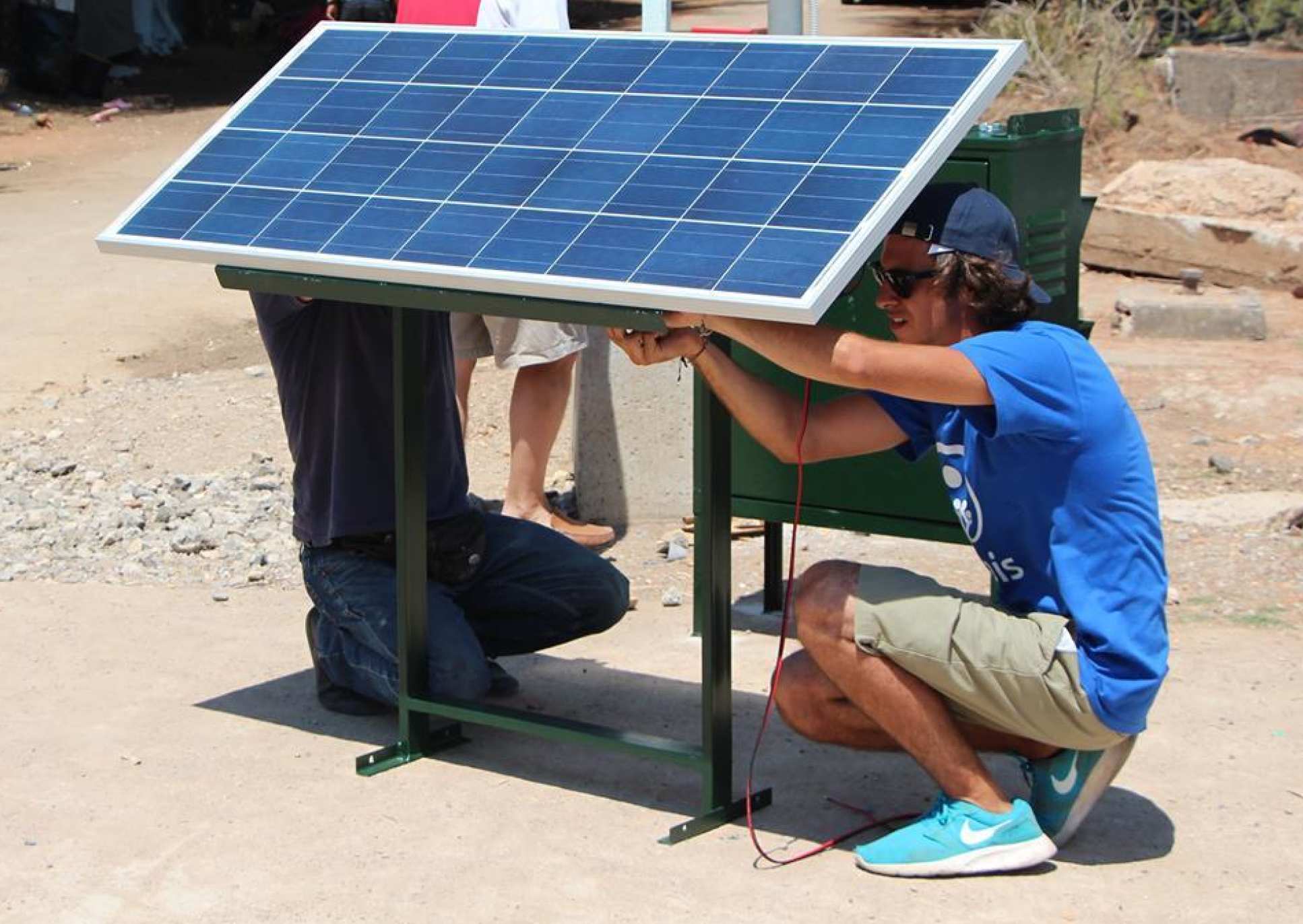Solar-powered charging stations provide “lifeline” to migrants

Alexandros Angelopoulos (far left) is the founder of Elpis Solar
An Imperial entrepreneur is bringing essential services and information to off-grid refugee communities using solar technology.
Alexandros Angelopoulos, who completed an MSc in Climate Change, Management and Finance at Imperial College Business School, is the co-founder of Elpis Solar, a social enterprise bringing electricity, clean water and educational resources to refugee camps in Europe and Africa.
Alexandros and his teammates recently secured $35,000 in the prestigious MIT Solve Challenge, which advances solutions from tech entrepreneurs to address the world’s most pressing problems. This included $25,000 funding from the Innovation for Refugee Inclusion Prize.

Essential technology
The social enterprise began when Alexandros was volunteering at a migrant camp on the Greek island of Samos, at a time where hundreds of refugees and migrants were arriving on its shores from each day.
 Alexandros quickly learned how important access to a smartphone was for migrants, not just as a means of communication, but also to enable them to access essential information, navigate around unfamiliar surroundings, plan onward travel, and maintain ties to loved ones. “A smartphone is the one thing people grab when forced to flee. It is a lifeline to migrants” Alexandros explained.
Alexandros quickly learned how important access to a smartphone was for migrants, not just as a means of communication, but also to enable them to access essential information, navigate around unfamiliar surroundings, plan onward travel, and maintain ties to loved ones. “A smartphone is the one thing people grab when forced to flee. It is a lifeline to migrants” Alexandros explained.
However, overcrowded refugee camps often lack adequate access to electricity, meaning charging smartphones is very difficult, Alexandros said. “People would crowd around one plug trying to charge their devices in ports and cafes. I had people coming up to me asking to use my phone to call home or access the internet. It was chaos.”
Serving communities
This experience led Alexandros to the founding of Elpis Solar and the development of their first solar-powered system – an off grid mobile phone charging station that can easily be deployed in migrant camps. As well as providing 12 charging ports, the system also contains a Raspberry Pi hard drive, which provides access to offline information and educational resources for those who don’t have access to the internet. They installed seven of these systems in migrant camps over the course of 2016/17.
 The team have since expanded to camps in Africa and have adapted their technology to suit the requirements of people on the ground. They are now deploying solar powered charging stations that also function as water filtration systems to refugees in Mahama, Rwanda’s largest migrant camp, where access to clean water is scarce. The systems also provide an important source of light, to make occupants feel safer at night, especially women and girls.
The team have since expanded to camps in Africa and have adapted their technology to suit the requirements of people on the ground. They are now deploying solar powered charging stations that also function as water filtration systems to refugees in Mahama, Rwanda’s largest migrant camp, where access to clean water is scarce. The systems also provide an important source of light, to make occupants feel safer at night, especially women and girls.
Alexandros said: “It is important that we put the specific needs of the communities we serve at the heart of what we do. It is only by speaking to the refugee community that we understand how we can best address the challenges they’re facing.”
Alexandros was awarded the Dean’s Community Award for the Power of Innovative Thinking from Imperial College Business School for the project, and was the recipient of a £20,000 Social Impact Scholarship, which recognises students who demonstrate outstanding citizenship and commitment to supporting their community or social causes.
Article text (excluding photos or graphics) © Imperial College London.
Photos and graphics subject to third party copyright used with permission or © Imperial College London.
Reporter
Deborah Evanson
Communications Division